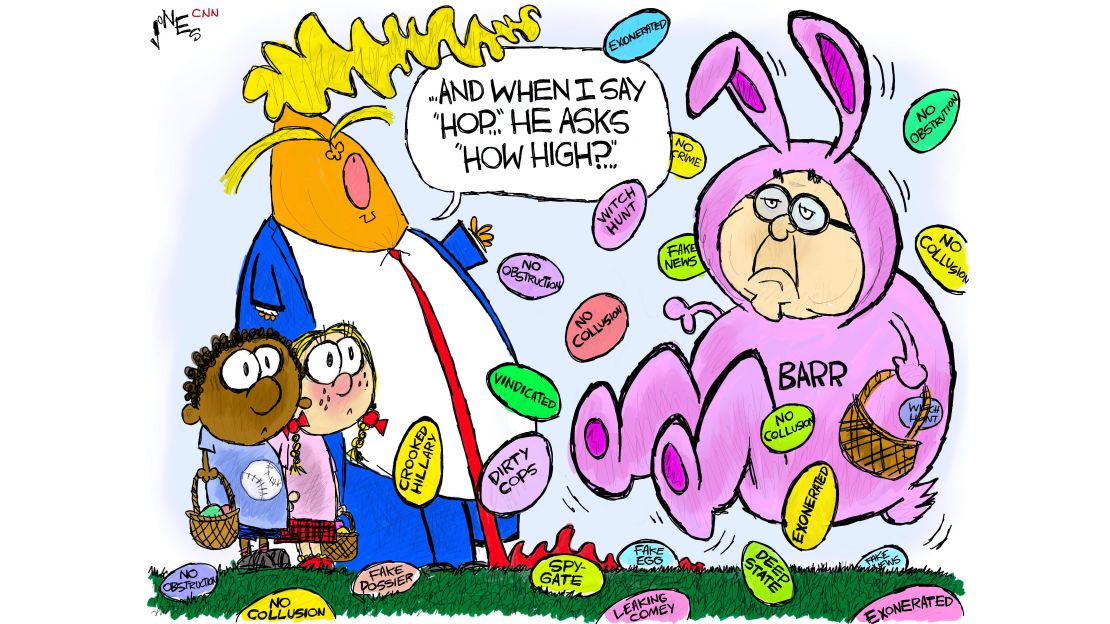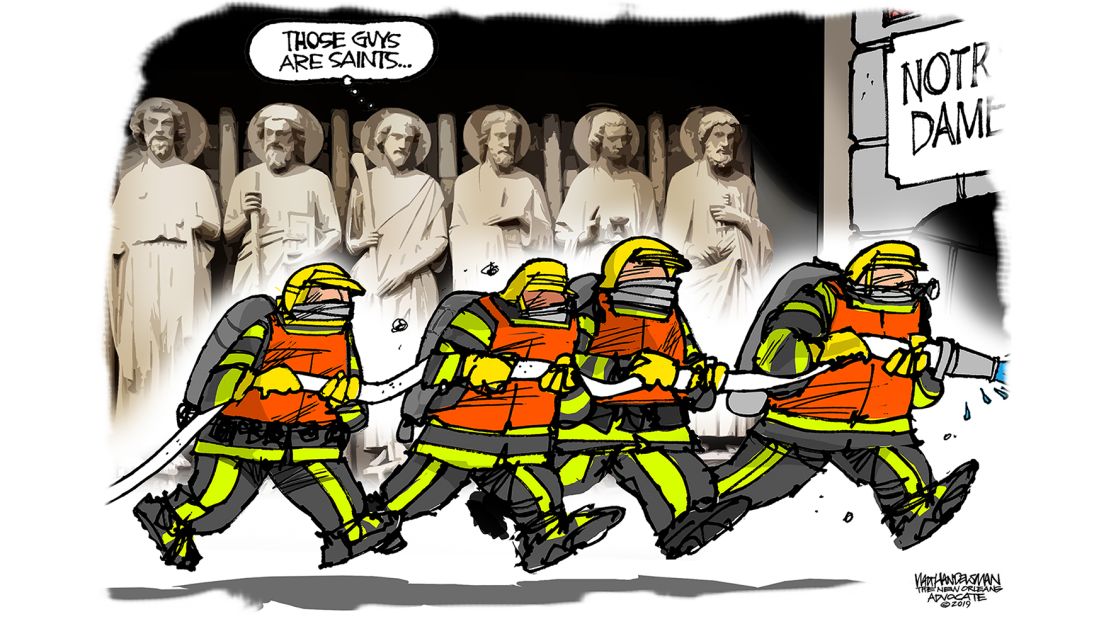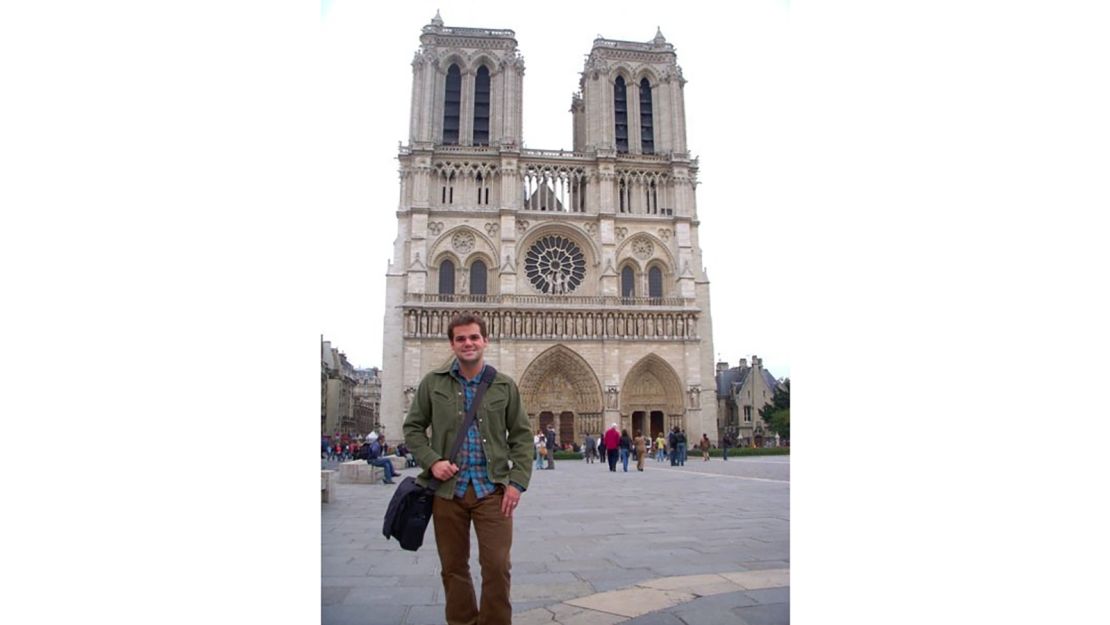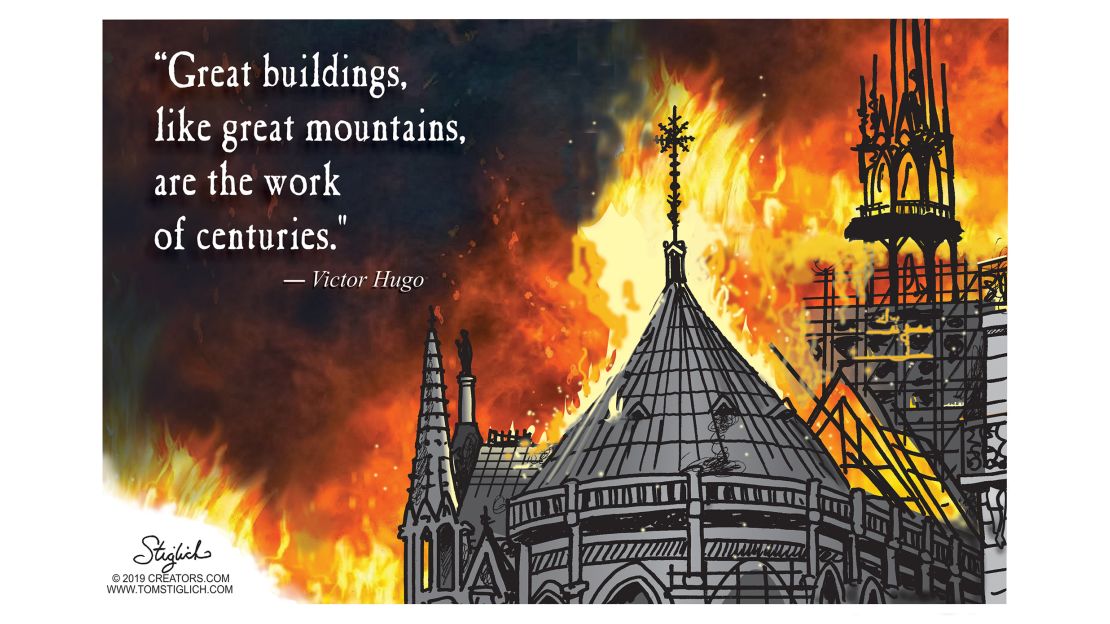Editor’s Note: Sign up to get our new weekly column as a newsletter. We’re looking back at the strongest, smartest opinion takes of the week from CNN and other outlets.
When it finally came to light this week, special counsel Robert Mueller’s report seemed to animate everyone – and satisfy no one.
The report’s 448 pages (with 946 redactions, courtesy of Attorney General William Barr) laid out evidence of a systematic campaign by the Russian government to undermine American democracy – and of President Donald Trump’s efforts to throw sand in the gears of the law enforcement machine that was investigating him.
At the same time, Trump’s defenders could point to Mueller’s conclusions that the President’s 2016 campaign did not illegally coordinate with the Russians and that he would not charge the President with obstructing justice.
That measured verdict gave ammunition to all sides. The report, wrote Princeton historian Julian Zelizer, “does not exonerate him from obstruction of justice – the charge at the heart of Presidents Nixon’s and Clinton’s impeachment processes. The Mueller team found multiple instances where Trump tried to stifle a legitimate investigation into his own conduct. Very often the only thing that saved him were advisers who wouldn’t do what he wanted done. … Indeed, if this is a ‘good’ report for the President, it is hard to imagine what a bad one would look like.”
But for a Republican commentator, the report’s findings were more than enough reason to turn the page: “It’s a painful pill for Trump critics to swallow, but ill-advised is not illegal, unsavory is not unlawful, and chaos is not a conspiracy,” observed Alice Stewart. The report can be summed up in “four simple words: Russiagate was no Watergate.”
What if Trump said…
To truly turn the page, though, might require the kind of presidential speech Trump could never give, wrote CNN National Security Analyst Peter Bergen. He imagined these healing words:
“My fellow Americans. …The special counsel’s report has cleared me and my team from conspiracy but I have to acknowledge that the report also paints a devastating portrait of the Russian efforts to manipulate our electoral process. Therefore, I now accept that this was not the possible work of ‘some guy in his home in New Jersey’ as I said during the transition. …In fact, (Russian President Vladimir) Putin and his henchmen are the only ones to blame. This is a disgrace and I am instructing my national security team to prevent any kind of repeat of what happened in 2016 …”
Barr at the barricades

Barr, who released the Mueller report, set the table for it with the four-page letter he wrote last month, disclosing some of Mueller’s findings and adding his own determination that Trump wouldn’t be charged with obstruction. Then, minutes before the report’s release on Thursday, Barr held a news conference that seemed designed to further shape how the public would perceive the report. Many were outraged.
“William Barr has cemented his status as a crafty partisan whose primary tricks are to cloak his political moves to shape public opinion and to protect President Trump under a thin sheen of law and process,” wrote CNN legal analyst and former prosecutor Elie Honig.
Journalist Jill Filipovic observed that the attorney general appeared to be trying to make excuses for Trump’s behavior, as described in the Mueller report, because of what he called Trump’s “sincere belief that the investigation was undermining his presidency.” A woman under those circumstances would be accused of surrendering to her emotions and wouldn’t get any sympathy. “Men in an emotional tailspin have ‘sincere beliefs,’” she noted. “Trump is perhaps the most emotionally unbalanced national politician in living memory, tweeting semi-literate all-caps outbursts and frothing up his followers with incoherent tirades.”
The defects in the Barr-driven process aren’t only his fault, wrote CNN legal analyst Michael Zeldin. They were a glaring illustration of why it was a mistake for Congress to abolish powerful independent counsels after the Ken Starr investigation of President Bill Clinton.
Notre Dame will rebuild

Easter Sunday began in Paris with parts of the ancient Notre Dame Cathedral in ruins and with the French nation vowing to rebuild. The Monday fire that destroyed the roof and collapsed the spire of the church, which has sat on an island in the Seine for eight centuries, riveted and saddened people around the world.
“What a week for this fire to happen: a time when thousands of worshippers in France were readying themselves through penitence and prayer for the Passion, for Easter itself – the celebration that comes on Resurrection Sunday,” wrote Jay Parini.
“It felt like the entire world was in pain,” wrote Frida Ghitis. “In a time of inflamed political, religious and sectarian divisions, somehow, a fire in a Catholic church, a cathedral in France, managed to melt away the animosity – if only for a moment – and bring people together in shared sorrow. Christian, Muslim, Hindu, Jew, or atheist; in France, India, Argentina, everywhere.”
In the National Review, Rich Lowry wrote, “Notre Dame stands for so many qualities that we now lack – patience and staying power, the cultivation of beauty, a deep religious faith, the cultural confidence and ambition to build a timeless monument of our civilization – that the collapse of its spire was almost too much to bear.”

The fire brought painful memories, and also a sense of determination, to Katie Hawkins-Gaar. As newlyweds, she and her husband Jamie took pictures in front of the cathedral in 2008 and vowed to return to Paris every five years. But when Katie returned in 2018, she was alone – and carrying her husband’s ashes. He had collapsed and died while running a half-marathon at the age of 32. “Everything is ephemeral, including the people and places we love,” she wrote. “Notre Dame will rebuild. And so will I.”
Lessons of rebuilding

That same spirit emerged in the words of people connected with two American churches that are rebuilding after fires: Christine Behnke, parish education director of Trinity Evangelical Lutheran Church UAC in Milwaukee, Wisconsin, wrote: “After watching a news report about Notre Dame Monday, I went and stood in Trinity’s dark, damp, scarred sanctuary. … All the ash has been removed, scaffolding erected and a temporary roof covers the nave. … We really are rising from the ashes!”
The Rev. Richard Hong, pastor of the First Presbyterian Church of Englewood, New Jersey, recalled that after the fire at his church, “while strangers were sending me messages about how devastated they were upon hearing about it, our members were not devastated. … We lost our building, but we still had our church – because we still had each other, and God was with us. God still is with us.”
Tiger Woods is back

Wearing the famous green jacket, Tiger Woods celebrated his first Masters win since 2005, in a comeback that energized fans and the sport of golf. Sports historian Amy Bass described it as “a return to grace after a fall documented everywhere, from the lurid tabloid headlines chronicling his marital infidelity and divorce to the medical journals outlining the odyssey of his multiple injuries and ongoing back pain.”
SIGN UP TO GET OUR NEW WEEKLY COLUMN AS A NEWSLETTER.
Not surprised by Aunt Becky’s rule-breaking

Gerry Brooks, an elementary school principal in Lexington, Kentucky, shared a sobering take on the college admissions scandal, focusing on “Aunt Becky,” the character played by Lori Loughlin in “Full House.”
“Do you know who isn’t surprised by the situation? Every educator in America,” Brooks wrote. “This thing occurs all the time, in every school.”
“When a parent signs a reading log saying a child read for 10 minutes that night but they really didn’t, because they were out late for a sports event or just didn’t have time, they are basically doing the same thing. They believe a rule or policy is not important or dumb or optional. Do you know who else thought the rules were dumb? Aunt Becky.”
Roxanne Jones asked: What’s the right punishment in the college admissions scandal? In her view, jail time shouldn’t be off the table. “No matter how many times we see justice seemingly tip in favor of the rich, or famous, Americans still want to believe we all have an equal shot. That money and privilege don’t always win. That hard work and integrity still matter. The college cheating scandal puts those notions to the test.”
What immigrants contribute
Controversy continued to swirl around Rep. Ilhan Omar, the Democrat from Minnesota, but retired Real Adm. John Kirby, a CNN national security analyst, came to her defense.
“One could argue that Rep. Omar’s use of ‘some people’ to describe the 9-11 hijackers was cavalier. Maybe it was,” Kirby wrote. “But her larger point was valid: those hijackers and the terrorist groups who survive them do not represent all Muslims, at home or abroad. And it’s just plain wrong – un-American, really – to hold in disdain an entire community of our fellow citizens for the evil act of a few who perverted their faith. … I’ve seen commentary online not only deriding Muslims as people, but also denying any contribution they made to our history.”
Kirby recalled a 2006 visit to Fallujah, Iraq, where he met an immigrant from Pakistan, Dr. Saleem Khan, a Navy surgeon. Khan was on his fifth tour in Iraq at that point and would go on to complete another three combat deployments, earning the Bronze Star and the Legion of Merit.
“I’ll never forget what he told me that day: ‘I don’t want anyone to ever say that, as an immigrant, I did not pay my dues.’”
Detaining the asylum-seekers
With Barr, the attorney general, ruling out the release of some asylum-seekers who have shown a credible case for avoiding deportation, the Trump administration’s immigration crackdown grew.
For those, like author Barbara Fischkin, who are the descendants of refugees to the United States, the move seemed particularly cruel.
A century ago, her mother, then 6 years old, escaped one of a series of pogroms in the Ukraine, in which more than 100,000 Jews died. She “ran into the woods and hid in a haystack where she might have frozen to death if not for a Catholic farmer who risked his own life to take her to his home. It is likely that the local band of young nationalists would have killed him if they found out.” Eventually her mother’s family made its way to the United States, where they have annually observed the spiritual injunction of Passover, which started Friday evening, to welcome the stranger.
“After my grandfather immigrated to the US, he insisted that every Seder end with his own, booming Yiddish-accented rendition of ‘God Bless America.’ I will sing this at our Seder and also hope that migrants and other immigrants in peril can sing it here and live comfortably in the open.”
Don’t miss these:
? Brandon Tensley: The real power of ‘pulling a Beyoncé’
? Thomas Maier: The evidence that the US government got into the assassination business
? Jill Filipovic: ‘Selfie’ deaths: Don’t blame victims
? Samantha Vinograd: Trump’s third date with Kim will likely be as unsuccessful as the last one
? Steven Mnuchin: The Tax Cuts and Jobs act is working
? Peggy Drexler: Georgia Engel, Mary Tyler Moore’s sidekick, showed that spacy can be smart
How to save the planet

As Earth Day approaches on Monday, it’s worth focusing on the crucial role of farming in determining the health of the planet. Bethany Cianciolo, who edits the Perspectives section of CNN Business, noted via email that two chief executives co-wrote an op-ed this week making the case for going back to basics.
Rose Marcario, president and CEO of Patagonia, and David Bronner, CEO of Dr. Bronner’s, argued that farmers should rotate crops, compost, plant cover crops and reduce tillage rather than rely on fertilizers and soil-mixing machines. “Over time, as chemically degraded soil starts to come back to life, crop yields from regenerative organic agriculture can outperform conventional methods, meaning we can feed a growing global population without destroying the planet.”
















